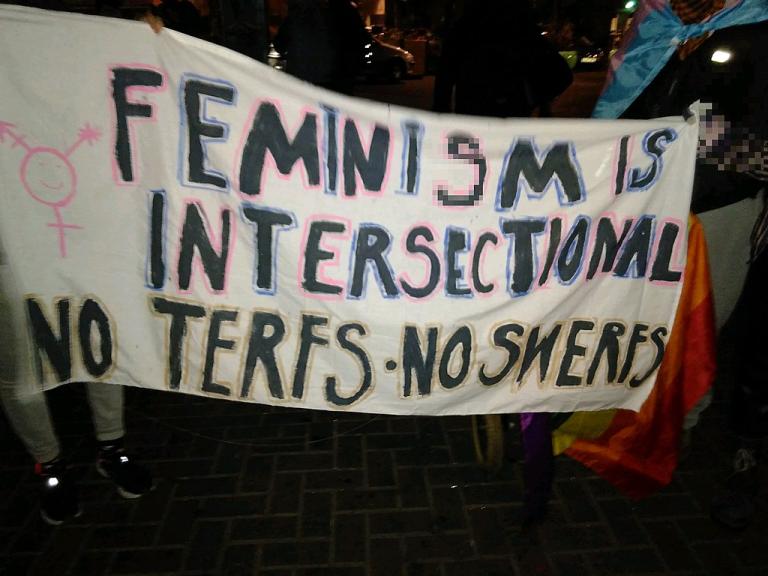More insights from the Somali-Dutch-American critic of radical Islam, the ex-New Atheist, Christian convert Ayaan Hirsi Ali. In Three Paradoxes of Feminism, she shows that today’s progressive feminism–what she calls “luxury feminism”–is actually working against the interests of most women.
This is due largely to woke ideology, which has distorted the women’s movement by imposing three paradoxes.
Paradox no. 1: Race trumps sex
Because of the dogma of intersectionality, which creates a hierarchy of oppression and victimhood, luxury feminists tend to be silent in the face of Islamic misogyny or sexual assaults upon white women by immigrants of color.
Hirsi Ali tells of the practice of “Taḥarrush jamāʿī,” meaning collective sexual assault, which is considered a legitimate form of “plunder” in Islam, especially against non-Muslim women. In the Islamic world, mobs of men will sometimes assault and rape women, and this has been happening also in Europe with Muslim immigrant men attacking Western women. Hirsi Ali cites examples of this and other kinds of sexual violence against women practiced by Muslim immigrants, such as “honor killings” connected with forced marriages. But “Luxury Feminists” say nothing about these kinds of violence against women because to criticize immigrants is to be considered “right wing” and they must show solidarity with oppressed people of color. Hirsi Ali explains:
In the hierarchy of victimhood, white people can never be victimized by people of color. To say otherwise is a feature of imperialism, or white hegemony, or white cisheteropatriarchy (it seems that feminists have recently grown tired of the vagueness of their terms so have resorted to inventing German-style neologisms). Luxury feminism is, first and foremost, a political opposition to conservatism: Whatever the latter says, the former must revile. When immigration proves harmful to women (both women in the West and within immigrant communities), feminists turn a blind eye out of political allegiance. Taken to its extreme, this feminism considers the wanton acts of extreme sexual violence by Hamas on October 7th as either “resistance by any means necessary” or simply “made up” by Israel – or, somehow, both.
Paradox no. 2: Transgenderism as a luxury belief
The basis of transgender activism is the luxury feminist belief that trans people are the new gay people. Since they are the new marginalized group, they must be defended at all costs. . . .Womanhood loses all meaning under the law of self-identification. Any man with feminine inclinations, or an autogynephilic fetish, can claim womanhood for himself. On the flip side of the coin, young women experiencing the strife of puberty and female embodiment are encouraged to reject their womanhood altogether.
Again, there is a connection to radical Islam:
Increasingly, young gay men and boys with feminine characteristics are presented with the notion that they are actually women. Activists celebrate their “gender journeys” in spite of the abject horrors and permanently damaging, even life-shortening, effects of “bottom surgery” which increasing numbers of gay men solicit. Under which regimes are gay men refashioned into “straight women?” Islamic countries like Iran inflict transgender “reassignment” surgeries onto gay men in an effort to erase homosexuality. Encouraging the view that gay men are, or should be, women is a kind of progress: The dystopian kind.
Paradox no.3: “Sex work is work”
Luxury feminists demonize feminists like Harry Potter author J. K. Rowling who do not accept transgenderism as TERFs (trans exclusionary radical feminists). Another derogatory acronym they use for feminists who protest the exploitation of women in prostitution and other forms of sex trafficking is SWERFs (sex worker exclusionary radical feminists). Luxury feminists have adopted the notion that “sex work is work,” that selling sex, whether from prostitution or pornography, is a legitimate way for women to earn a living.
Despite MeToo’s obsession with consent and its punishment of men for minor sexual misconduct, one modern feminist myth is that sex work – both online in the form of OnlyFans and in the porn and prostitution industries – is empowering. There is even a “sex worker inclusive LGBT+ Pride flag” featuring a red umbrella, the international symbol of sex workers. In 2001, Venetian activists took to the streets with red umbrellas to protest inhumane working conditions, while at the same time defending the legitimacy of such work.
Hirsi Ali surveys the exploitation and abuse that are commonplace in the “sex industry.” That includes Only Fans, the website that allows women to turn themselves into porn stars for their subscribers. Only a few women, she says, make much money from the site, but the pictures and videos they post remain on the internet forever, at the cost of their reputation and their prospects in the professional world. Once again, luxury feminism ends up harming women.
What Is the Path Forward for Women?
Hirsi Ali also criticizes the old-fashioned “radical feminists” who, to their credit, are TERFs and SWERFs, but who demonize men. She has praise for a new “realist feminism” that has arisen in the UK. Also, “There is a growing ‘postliberal’ movement which brings together this kind of feminism with more conservative, pro-family and often pro-Christian views.”
She recommends retiring the “feminist” label altogether. She advocates bringing back both all-female spaces and all-male spaces, such as social clubs, emphasizing the importance of marriage, and increasing social and financial support for mothers. She closes on a personal note, with wide applicability:
One of the reasons I fled to the West was to have the freedom to marry for love. Here, we take it for granted that marriage is not just a self-serving contract or a tribal agreement between families, but a loving union of equals who possess complementary virtues. A happy marriage is the fundamental unit of a healthy society. For a marriage to be happy and fulfilling, it must be cooperative. For the health of the body politic, marital cooperation has to be reflected on a large scale. Only then will families grow and flourish, birth rates stabilize, and the collective mental health crisis ease.
Photo by Charles Hutchins from London, United Kingdom, CC BY 2.0 <https://creativecommons.org/licenses/by/2.0>, via Wikimedia Commons

















